The Bowman Society celebrates a decade of mentorship for minority physician-scientists.
By Brooke E. O’Neill
When renowned University of Chicago genetics researcher James Bowman, MD, was first approached about using his namesake for a new society to support underrepresented minorities in their academic medical careers, he was honored—but hesitant. As the Biological Sciences Division’s first tenured African-American professor and a mentor to countless students and faculty, Bowman wanted to make sure the organization had legs to last beyond a few meetings.
Ten years later, the Bowman Society is still going strong, bringing together physician-scientists for mentorship and scholarly discussion in a named lecture series. Lecture series topics may include but shall not be limited to those that are important to the health and care of communities facing health inequities. To date, its lecture series has hosted more than 45 talks, drawing speakers such as former U.S. Surgeon General Regina Benjamin and, most recently, MacArthur Genius Award recipient Olufunmilayo Olopade, MD who spoke on "Precision Medicine for All" at the society’s April 9 , 2015 anniversary lecture.
“Dr. Bowman’s first act of generosity was to allow us to name the society after him as a living legacy,” says Holly Humphrey, MD, Pritzker’s immediate past dean of medical education. The professor emeritus of medicine and pathology continued to support its mission financially and intellectually until his death in 2011. “We could always count on him to be sitting in the very front row at lectures and usually to ask the first question,” she says. “He was an inspirational figure.”
For underrepresented minority students, residents, and faculty, Bowman’s example is critical in a field that still struggles with diversity. “If you want to pursue an academic medical career, just being a good student isn’t enough,” says society founder William McDade, MD, PhD, who wanted to provide young physician-scientists “an opportunity to learn the ins and outs of academic life” through mentorship with senior faculty.
McDade himself sought out Bowman’s counsel for the first time when debating which campus research lab to join as a medical student. Bowman’s advice to investigate sickle-cell hemoglobin, an issue of particular concern for African American populations, led McDade to researcher Robert Josephs, PhD, and, ultimately, to his doctoral dissertation topic.
“Dr. Bowman was really a beacon,” says McDade, now associate professor of anesthesia and critical care deputy provost for research and minority issues. “It’s that kind of direction that the society aims to give people.” In addition to the lecture series, the organization holds regular meetings to encourage networking between physicians at different career stages.
“It puts at the forefront people who have overcome odds and succeeded,” says medical resident Baddr Shakhsheer, MD. “It allows for natural mentorship channels to be formed.” He credits those connections for helping to further his own career and also pushing him think more deeply about race-based issues in regards to patient care.
Pritzker student Victoria Thomas agrees. “Part of the reason I chose the University of Chicago was its strong focus on healthcare disparities,” says the second-year who is researching cardiovascular health. “The Bowman Society allows me to learn about up-and-coming research in the field and connect with people who have similar backgrounds to mine. It’s really empowered me to make sure I give back to my community.”
That empowerment remains the heart of the society’s mission. “It still serves the purpose of bringing together people who might seldom encounter each other,” says McDade, “giving them a chance to meet others doing marvelous things.
He thinks Dr. Bowman would be pleased.
James E. Bowman, MD
1923 - 2011
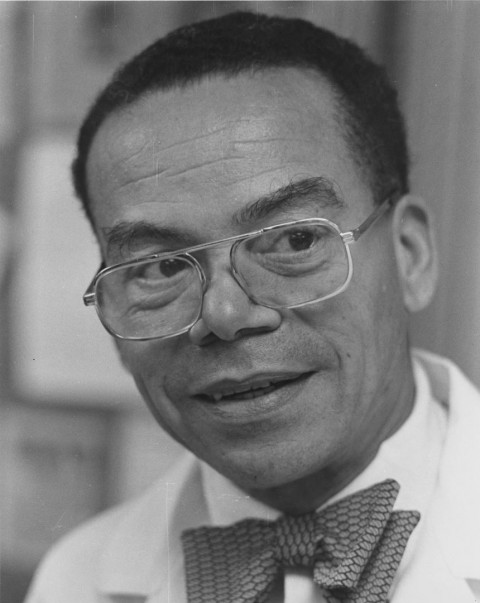
A tireless mentor for minorities. A vociferous advocate for bioethics. An internationally recognized expert on pathology and genetics. A trailblazer.
These powerful words were not enough to describe James E. Bowman, MD, the first tenured African-American faculty member in medicine at the University of Chicago whose work paved the way for new understandings in inherited blood diseases.
Bowman was one of the first to study genetic variation among diverse populations, particularly those of African origin. He was a senior scholar for the MacLean Center for Clinical Medical Ethics, a member of the committees on genetics and on African and African-American studies, director of the University’s Comprehensive Sickle Cell Center and assistant dean of students for minority affairs at the Pritzker School of Medicine.
Born in 1923 in then-segregated Washington, D.C., Bowman earned a bachelor’s degree from Howard University in 1943. Later that year, he entered Howard Medical School but was drafted into the Army as part of a special program that condensed medical training into three years.
He later completed his residency at Chicago’s St. Luke’s Hospital, during which he met Barbara Taylor, whom he married in 1950. The Korean War took them from Chicago to Denver. When his service ended in 1955, they moved to Iran, where Bowman led Nemazee Hospital’s pathology program.
Their time in Iran from 1955 to 1961 was marked by life-changing moments: Their daughter, Valerie, was born. Then, Bowman encountered favism, the genetic blood disease that would set the course for his career.
Favism prevents the body from breaking down a toxin in fava beans and triggers a dangerous anemic reaction. The mutation piqued Bowman’s longstanding interest in hereditary blood diseases and led to a series of important discoveries.
While circling the globe to collect blood samples, he frequently collaborated with UChicago researchers, who were the first to describe the enzyme deficiency and its connection with antimalarial medications.
He soon joined UChicago’s faculty in 1962.
Later in his career, Bowman focused on ethical, legal and policy issues raised by human genetics and mandatory screening tests. He gained national attention by arguing that required sickle cell screening laws for adults could revive certain elements of the eugenics movement. Along the way, he published more than 90 studies in various fields.
Bowman died in 2011 at age 88, but not before a namesake society was founded in 2005 that would serve as a resource for minority faculty and students.
His impact extends far beyond research, ethics and policy, and his legacy continues through the Bowman Society. To read more about Dr. Bowman, visit bitly.com/uchicago-bowman.
In Their Words
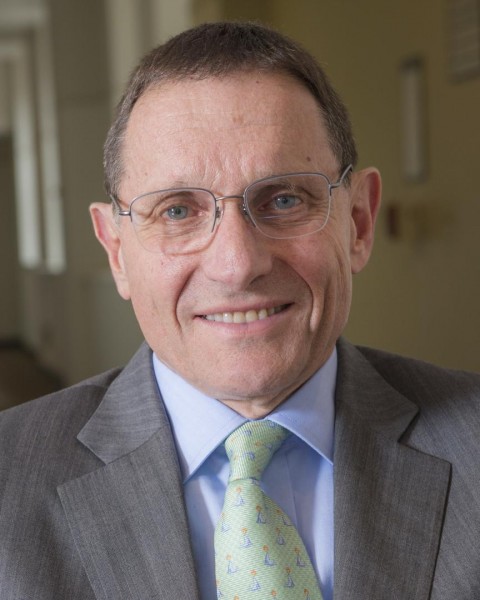
Kenneth S. Polonsky, MD
Where do you see the impact of Dr. Bowman’s legacy in your personal, professional or academic life?
"The story if Dr. Bowman’s illustrious career and its profound positive impact on medicine, science, and the University of Chicago is testimony to how we all benefit from a diverse and inclusive faculty who are encouraged to challenge existing dogma and are bale to think in new and innovative ways about important problems."
Ten years from now, how would you like to see Dr. Bowman’s legacy/impact grow?
"I would hope that the University of Chicago Medicine would have a national reputation for being an organization that values and nurtures diversity as a core element of our mission."
What three words come to mind when you think about Dr. Bowman and/or his legacy?
"Courageous, Inspiring, Visionary"
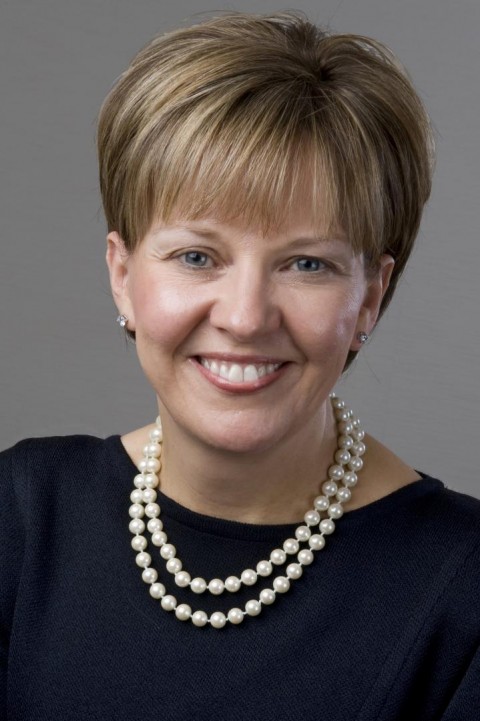
Holly Humphrey, MD
Where do you see the impact of Dr. Bowman’s legacy in your personal, professional or academic life?
"Dr. Bowman touched many, many lives on this campus. At Bowman Society lectures, he lent a historical perspective on the issue being discussed. He could discuss the scientific subject, but also explain the history of that particular topic on campus. He always thought people were coming to hear the lecturer, but I think they sometimes were coming to see him."
Ten years from now, how would you like to see Dr. Bowman’s legacy/impact grow?
"That our students continue to seek role models of physician-scientists who represent the kind of professional they would like to be."
What three words come to mind when you think about Dr. Bowman and/or his legacy?
"Engaging, Thoughtful, Inspirational"
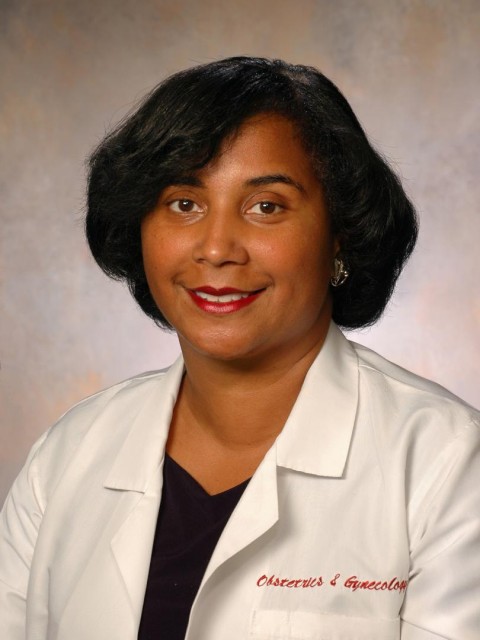
Anita Blanchard, MD
Professor, Obstetrics and Gynecology
Associate Dean, Graduate Medical Education
Where do you see the impact of Dr. Bowman’s legacy in your personal, professional or academic life?
"As the first physician in my family, I needed guidance in medical school. Dr. Bowman was my beacon and inspiration. I spent hours in his office. He always encouraged me to do my best and put me on the path of success. Upon graduation, I stayed on as faculty at University of Chicago, primarily due to his influence. He challenged me to stay in an academic setting to teach others. I have patterned my career in medical education after his example."
Ten years from now, how would you like to see Dr. Bowman’s legacy/impact grow?
"He was a father, mentor and role model for so many people in medicine. He boldly opened doors and created opportunities. I hope to reciprocate my enormous debt of gratitude that I owe him by paying it forward to help upcoming students, residents and faculty."
What three words come to mind when you think about Dr. Bowman and/or his legacy?
"Inspiration, Innovation, Elevation"
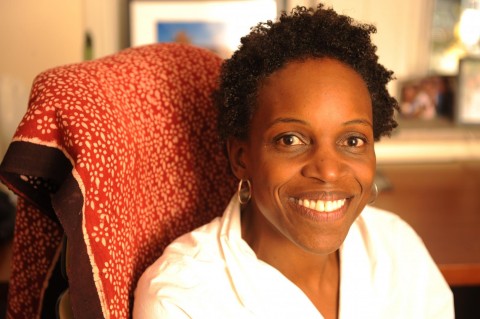
Melissa Gilliam, MD
Professor, Obstetrics/Gynecology and Pediatrics
Vice Provost, Faculty Development and Institutional Diversity
Chief, Family Planning and Contraceptive Research
Head, Pediatric and Adolescent Gynecology
Where do you see the impact of Dr. Bowman’s legacy in your personal, professional or academic life?
"Dr. Bowman is renowned for excellence in scholarship, clinical care, and mentorship. He had a broad network of colleagues across the globe. Those are the characteristics I try to emulate in my own work. My commitment to the Bowman Society and supporting the generation of young people committed to health care draws on this legacy."
Ten years from now, how would you like to see Dr. Bowman’s legacy/impact grow?
"I would like to see the Bowman Society grow and anchor the internal community, external community, and help all of those who graduate or leave remain connected to the University of Chicago."
What three words come to mind when you think about Dr. Bowman and/or his legacy?
"Mentorship, Excellence, Academia"
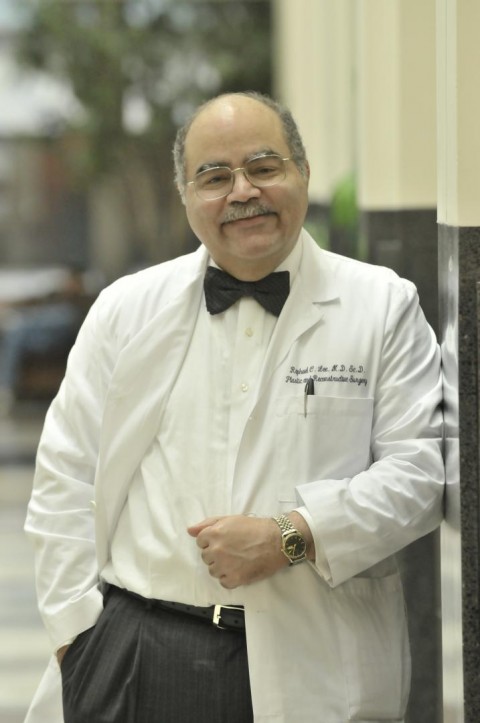
Raphael C. Lee, MD
Paul and Allene Russell Professor of Surgery, Medicine, Anatomy and Organismal Biology
Fellow, Institute for Molecular Engineering
Where do you see the impact of Dr. Bowman’s legacy in your personal, professional or academic life?
"He had a very important impact on the University because he cared enough to reach out to underrepresented minority students and faculty to provide encouragement, advice and support. He made them understand that they belonged here. As a result, many persevered through challenges to accomplish success."
Ten years from now, how would you like to see Dr. Bowman’s legacy/impact grow?
"Jim Bowman’s impact was derived from convincing minority faculty and students on a very personal level that they added equal value to the University of Chicago mission as those from any other group. It is important us all to shepherd that vital role that he voluntarily created and served."
What three words come to mind when you think about Dr. Bowman and/or his legacy?
"Commitment, Caring, Credibility"
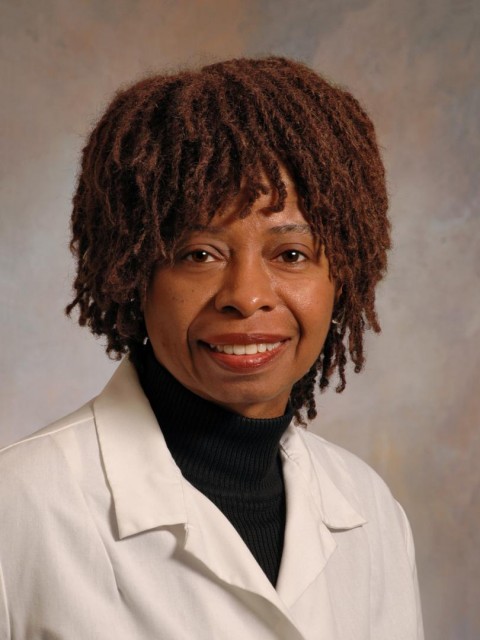
Doriane C. Miller, MD
Associate Professor of Medicine, Department of Medicine
Director, Center for Community Health and Vitality, Urban Health Initiative
Where do you see the impact of Dr. Bowman’s legacy in your personal, professional or academic life?
"Dr. Bowman represents a tradition of inquiry and scholarly rigor that is in keeping with the values of the University of Chicago. His legacy is best reflected in the current work of our diverse faculty who hold leadership positions within the institution."
Ten years from now, how would you like to see Dr. Bowman’s legacy/impact grow?
"Continuation of Dr. Bowman' legacy through the support of underrepresented minorities at all levels of the institution."
What three words come to mind when you think about Dr. Bowman and/or his legacy?
"Excellence, Commitment, Rigor"
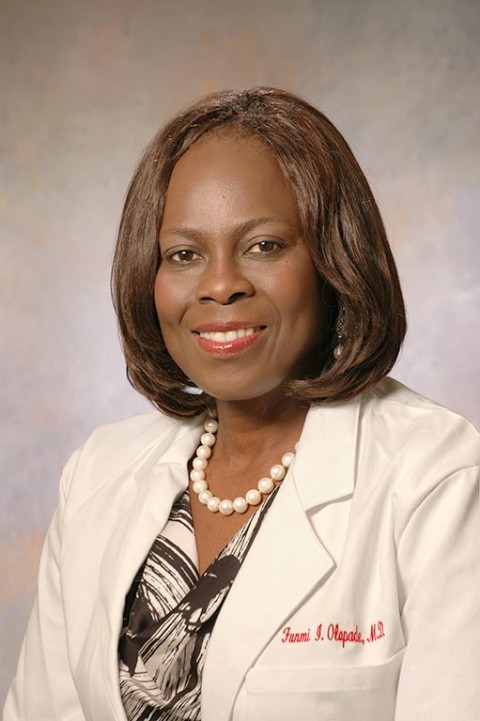
Olufunmilayo I. Olopade, MD
Walter L. Palmer Distinguished Service Professor of Medicine and Human Genetics
Associate Dean, Global Health
Director, Center for Clinical Cancer Genetics
Where do you see the impact of Dr. Bowman’s legacy in your personal, professional or academic life?
"Dr. Bowman was a great advocate for genetic justice, and this has informed my approach to genetic testing for inherited susceptibility to breast cancer. He was keenly aware of the societal implications of genetics and was a passionate advocate for patients with sickle cell disease."
Ten years from now, how would you like to see Dr. Bowman’s legacy/impact grow?
"In a great research university on the South Side of Chicago, Dr. Bowman was probably the first tenured African-American professor whose word had national and international impact and addressed an important health problem of the community. By recruiting a talented pool of trainees and nurturing their careers, I would like the University of Chicago to boast more scholars like the great Dr. Bowman."
What three words come to mind when you think about Dr. Bowman and/or his legacy?
"Impactful Researcher, Global Citizen"

Monica Peek, MD
Associate Professor of Medicine
Associate Director, Chicago Center for Diabetes Translation Research
Where do you see the impact of Dr. Bowman’s legacy in your personal, professional or academic life?
"Dr. Bowman’s legacy is manifest in the multitude of diverse physicians on campus, and throughout the country, who are leaders in research, policy and medical education. My professional success at the University of Chicago is owed in great part to pioneers like Dr. Bowman, who showed the world the importance of cultivating African-American physician scientists."
Ten years from now, how would you like to see Dr. Bowman’s legacy/impact grow?
"Dr. Bowman’s impact, particularly on trainees in the academic pipeline, could be exponentially enhanced by strengthening the Bowman Society at the University of Chicago and expanding its mission to medical centers throughout the country. The Bowman Society, and its associated lecture series, provides a critical opportunity for mentoring and professional networking among under-represented minority physicians and physicians in training."
What three words come to mind when you think about Dr. Bowman and/or his legacy?
"Excellence, Impact and Commitment"
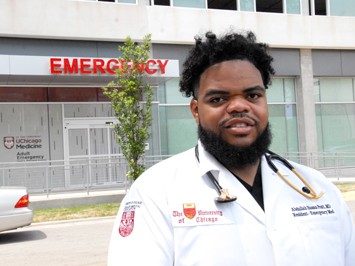
Abdullah Pratt, MD '15
PGY-3, Emergency Medicine, University of Chicago Medicine
Where do you see the impact of Dr. Bowman’s legacy in your personal, professional or academic life?
"Dr. Bowman contributed groundbreaking research in various areas, most notably G6PD deficiency, which in itself is a powerful legacy because every medical student in the nation is required to understand this concept. Even more powerful is the legacy of minority physicians he mentored who, in turn, have become mentors to minority students and residents in Chicago and the Midwest. This aspect of his legacy is what I truly owe credit for most of my past and future success."
Ten years from now, how would you like to see Dr. Bowman’s legacy/impact grow?
"A foundation or scholarship for minority medical students from low-income areas who are devoted to solving health care disparities would be a perfect representation of what he stood for and would aid in growing Dr. Bowman's legacy."
What three words come to mind when you think about Dr. Bowman and/or his legacy?
"Pioneer, Revolutionary, Immortal"
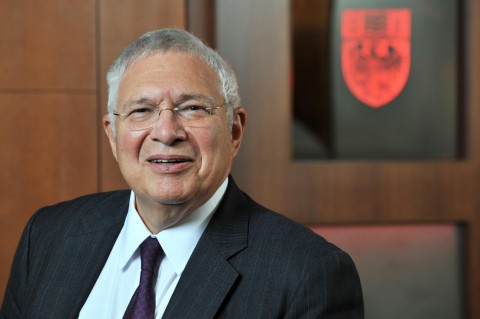
Mark Siegler, MD
Lindy Bergman Distinguished Service Professor of Medicine and Surgery
Executive Director, Bucksbaum Institute for Clinical Excellence
Director, MacLean Center for Clinical Medical Ethics
Where do you see the impact of Dr. Bowman’s legacy in your personal, professional or academic life?
"Jim Bowman taught me when I was a medical student and continued to teach me when I was a resident and attending. When we established the Center for Clinical Medical Ethics in 1984, Dr. Bowman became a charter faculty member of the Center. He taught all of us not only genetics but also how to care for vulnerable patients and how to work to eliminate inequities in the health system and disparities in health."
Ten years from now, how would you like to see Dr. Bowman’s legacy/impact grow?
"I hope Dr. Bowman’s legacy will grow through his foundational work on how to best provide clinical care for vulnerable patients and how to commit ourselves to reducing and ultimately eliminating health disparities."
What three words come to mind when you think about Dr. Bowman and/or his legacy?
"Incisive, Decisive, Provocative"